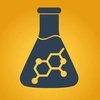What can scientists learn from entrepreneurs?
A. Seyh¬an; C. Carini, Handbook of Biomarkers and Precision Medicine
The Lean Startup (2011) revolutionised entrepreneurship by introducing the scientific method to startup founders. Given its success in the tech industry, could this refined methodology offer valuable insights to scientists?
Lean Startup author Eric Reis advocates the idea that entrepreneurs can be found in unexpected places. He defines startups as:
“any group developing a product under conditions of extreme uncertainty.”
Intriguingly, this definition aligns closely with the objectives of many scientific research groups today.
Consider drug discovery researchers.
Just like an entrepreneur who is unsure who their customers will be and which of their product features will sell, drug discovery researchers often don’t know the exact mechanisms, off-target effects, or therapeutic window of a drug at the onset of development.
To navigate these uncertainties, entrepreneurs have developed a repertoire of tools and strategies that most scientists are not trained to recognize or use:
Specialist efficiency vs team efficiency
In a multidisciplinary system, for instance, maximising the output of a single phase (individual efficiency) can compromise the efficiency of the overall process (team efficiency).
Drug discovery often involves a linear timeline of lengthy stages conducted by different labs.
As each group aims to maximise their own stage’s individual efficiency, the overall drug discovery process becomes less efficient.
For instance, in cancer research, chemists are often trained to optimize a single metric of a drug - often its IC50 value (dose that kills 50% of cells). They may spend months focusing on the one compound that scores best in this metric for the sake of a good publication.
However, from the perspective a biologist continuing this work, the IC50 potency alone is not very noteworthy!
Despite conducting the initial structure-activity relationship with near-perfect meticulousness, later-stage challenges such as toxicity, off-target effects, and an unknown mechanism could send the chemists back to the drawing board.”
The “Valley of Death” illustrates the challenges of translating early-stage drug discovery projects into clinical applications. One might infer that a portion of this Valley consists of viable projects delayed or even abandoned due to misaligned incentives causing months or even years of superfluous work or inertia.
To operate with an efficiency remotely comparable to a well-run company, the nature of scientific collaboration needs to take a few notes from lean startups:
Small batches and fast feedback loops
Lean startup methodology suggests that in conditions of high uncertainty, breaking down a large task into smaller, manageable parts, will reduce the risk of wasted effort and resources.
A few months ago I wrote an article on what I believe to be the pinnacle of lean drug discovery: the automated facilities at Emerald cloud labs. Their facilities use AI automation to seamlessly merge multiple disciplines in the same location, from organic synthesis to cell viability and fluorescent tags.
This system allows each new compound to be tested immediately after synthesis, validating the project’s hypothesis before making more compounds.
By reducing the compound batch size and the delays in hypothesis testing feedback, the system is faster by multiple orders of magnitude:
A case in point is Dmytro Kolodieznyi, a PhD student, who replicated years of research in just a week, using this lean drug discovery method.
That’s a 100x time increase in productivity!
Nonetheless, these incredible benefits are not exclusive to high-tech labs.
Traditional laboratories working in a dynamic tandem of short feedback loops can also ensure that the direction of their project remains aligned with the end goal.
By comprehending the fundamental principles that drive efficiency and success in entrepreneurship, scientists can enhance the impact of their work and accelerate the translation of early-stage research into viable clinical applications.
Have you benefited from insights outside of your field of expertise? Let me know your thoughts here!
I hope you enjoyed this week’s article, I hope to write more about research and entrepreneurship soon!




